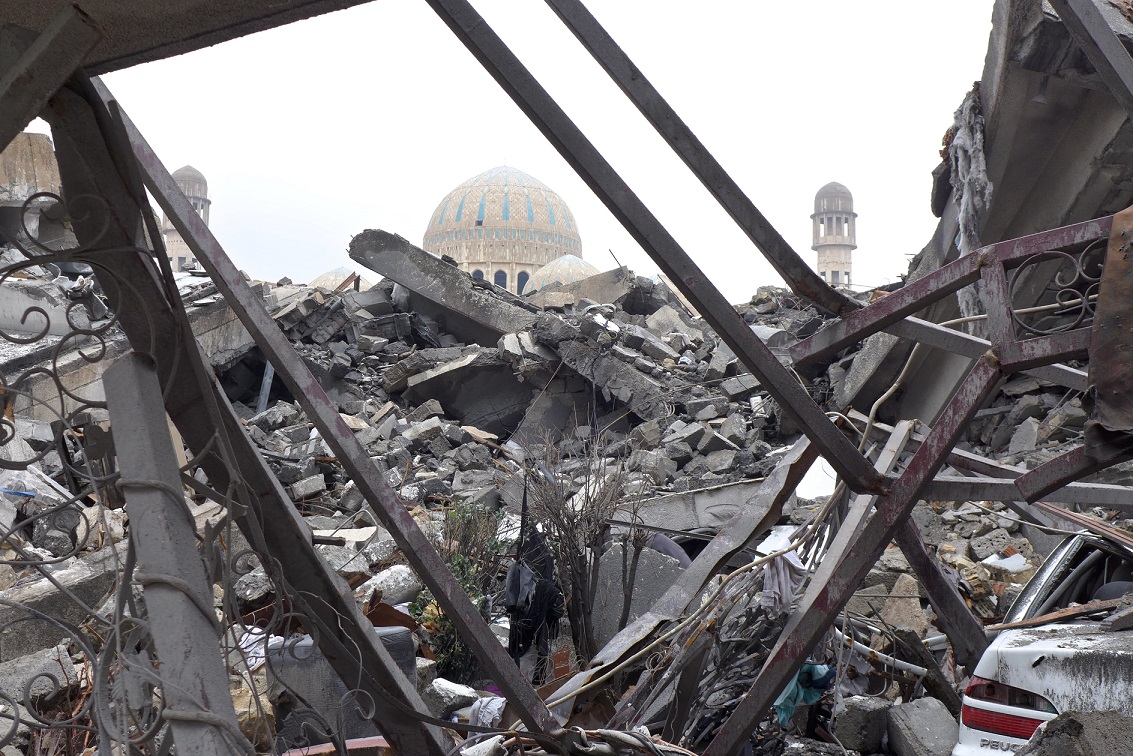Savage ‘bastard’ or US stooge? Iraqi victims still have questions about Baghdadi’s death

Injured civilians flee fighting in Mosul’s Old City in July 2017 (MEE/Tom Westcott) By Tom Westcott MEE speaks to Iraqis who previously talked about how Islamic State had shattered their lives and asked how they see the news of Abu Bakr Baghdadi’s death
Iraq has the dubious accolade of being the birthplace of the Islamic State group. After its initial formation in 2006 in the wake of the US occupation, Abu Bakr al-Baghdadi, an Iraqi from Samarra, declared himself to be the state’s caliph in July 2014, from Mosul’s historic al-Nuri Mosque. Although the news of Baghdadi’s death last week grabbed international headlines, many Iraqis, including those who fell victim to IS, are ambivalent, some not even believing the news. ‘Baghdadi’s a bastard and he was going to die eventually, so his time had come’ – Adbulrahman, Mosul “I don’t care at all, really,” said Mosul resident Abdulrahman, 21, who lost his mother, father and younger brother in a US coalition air strike on three family homes in Mosul in January 2017. “Baghdadi’s a bastard, and he was going to die eventually, so his time had come. I’m slightly happier that the world will be way better without his ass in it.” The Combined Joint Task Force – Operation Inherent Resolve (CJTF-OIR) – the US-led IS-fighting coalition which carried out many controversial air strikes in Mosul – initially denied carrying out the attack on Abdulrahman’s house, which left 18 people dead, despite MEE giving them the exact co-ordinates. A year later, after a follow-up enquiry, they confirmed the coalition was responsible for this air strike, explaining: “There appears to have been a staff error between March and November last year that resulted in an inaccurate response from CJTF-OIR.”

All that remained of Abdulrahman’s Mosul family home after a coalition air strike in January 2017 (MEE/Tom Westcott)Abdulrahman, who has managed to pick up the pieces of his shattered life and is now studying medicine at Mosul University, admitted he was more concerned with Iraq’s current political situation, where weeks of widespread anti-government protests have brought much of the country to a virtual standstill, than he was about Baghdadi’s death. Too late Rami Dinha, 25, from Qaraqosh – a town near Mosul, which IS forcibly emptied of its Christian inhabitants save a few elderly people who refused to leave – said the protests had distracted most Iraqis from international news, including Baghdadi’s death. The IS leader’s demise was still important, he said, albeit coming much too late.
